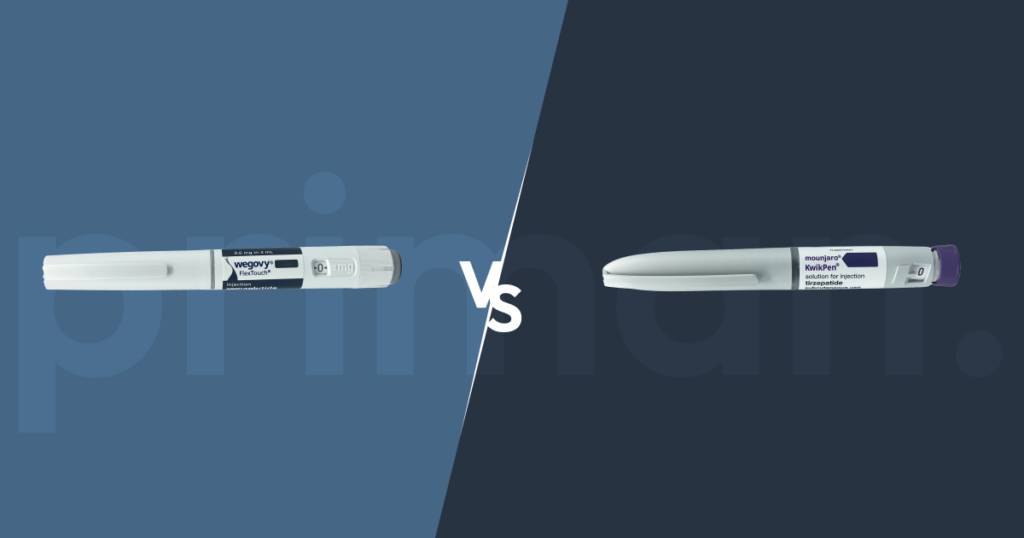Ozempic (semaglutide) has taken the weight management world by storm. This injectable weight loss medication, originally designed for type 2 diabetes, has shown remarkable effectiveness in promoting weight loss. However, with its growing popularity, concerns about potential side effects have also surfaced, including hair loss. Let’s delve into the science behind this concern.
So, does Ozempic cause hair loss directly?
The good news is that current research doesn’t show a direct link between Ozempic and hair loss. Studies haven’t listed hair loss as a common side effect in the official Ozempic prescribing information.
However, some users do report experiencing hair thinning or shedding after starting GLP-1 medications. There’s a more likely culprit for this: telogen effluvium.
Telogen effluvium is a temporary hair loss condition triggered by stress on the body. Rapid weight loss, a hallmark of Ozempic’s effectiveness, can be a significant stressor. This stress disrupts the hair growth cycle, pushing more hairs into the shedding (telogen) phase, leading to temporary hair loss.
Here’s a breakdown of the science behind telogen effluvium:
- Hair growth goes through three phases: anagen (growth), catagen (transition), and telogen (resting/shedding).
- Normally, 85-90% of hairs are in the anagen phase, with the rest transitioning or resting.
- Stressful events can push more hairs prematurely into the telogen phase, leading to increased shedding 2-3 months later.
Weight loss, especially rapid weight loss, is a well-documented trigger for telogen effluvium. So, while Ozempic itself might not directly cause hair loss, the weight loss it promotes could be the underlying reason for shedding.
Evidence and considerations
Studies on GLP-1 receptor agonists, the class of medications Ozempic belongs to, paint a similar picture. Research on Wegovy (another GLP-1 medication) found hair loss in 3% of participants compared to 1% on placebo. This suggests a slight increase in hair loss risk, but not a definitive cause-and-effect relationship.
Here’s an important point to consider:
- The hair loss reported in these studies was uncommon and often temporary.
- Most people experience hair regrowth once their body adjusts to the weight loss and the stress subsides.
However, some sources warn against the misuse of Ozempic for rapid weight loss. Rapid weight loss can put a significant strain on the body, potentially leading to more severe or even permanent hair loss. It’s crucial to emphasise that Ozempic should only be used under the supervision of a healthcare professional and as part of a comprehensive weight management plan.
Managing hair loss during weight loss medication use
Incase if you’re experiencing hair loss while taking Ozempic, here are some steps you can take:
- Talk to your healthcare professional: Discuss your concerns and rule out any underlying medical conditions that could be contributing to hair loss.
- Be patient: Telogen effluvium is temporary. Hair growth usually resumes once the stressor (weight loss in this case) is addressed.
- Focus on healthy habits: Ensure you’re getting adequate protein, vitamins, and minerals in your diet, all of which are essential for hair health.
- Consider additional support: While there’s no guaranteed solution, some people find scalp massages or hair loss shampoos helpful. However, it’s best to discuss these options with your healthcare professional or dermatologist.
The takeaway
Ozempic doesn’t appear to directly cause hair loss. However, the weight loss it promotes can trigger telogen effluvium, leading to temporary hair shedding. If you’re concerned about hair loss while on Ozempic, discuss it with your healthcare professional. Remember, healthy weight management and a balanced diet are crucial for overall well-being, including healthy hair growth.
References
- Capstone (2024) Can weight loss cause hair loss?, Capstone Medical Centre Southbank. Available at: https://capstonemed.com.au/health-topics-a-z/weight-loss-cause-hair-loss/.
- Chien Yin, G. O., Siong-See, J. L. and Wang, E. C. E. (2021) “Telogen Effluvium – a review of the science and current obstacles,” Journal of dermatological science, 101(3), pp. 156–163. doi: 10.1016/j.jdermsci.2021.01.007.
- Kobren, S. D. (2023) Misuse of ozempic for rapid weight loss can cause significant and perhaps permanent hair loss, Dermatology Times. Available at: https://www.dermatologytimes.com/view/misuse-of-ozempic-for-rapid-weight-loss-can-cause-significant-and-perhaps-permanent-hair-loss.
- Leigh Ann Anderson, P. (no date) Do Ozempic, Wegovy, Mounjaro & Zepbound cause hair loss?, Drugs.com. Available at: https://www.drugs.com/medical-answers/ozempic-wegovy-mounjaro-cause-hair-loss-3575019/.
- Natarelli, N., Gahoonia, N. and Sivamani, R. K. (2023) “Integrative and mechanistic approach to the hair growth cycle and hair loss,” Journal of clinical medicine, 12(3), p. 893. doi: 10.3390/jcm12030893.
- Veazey, K. (2021) Hair loss after weight loss: Causes, risks, and prevention, Medicalnewstoday.com. Available at: https://www.medicalnewstoday.com/articles/weight-loss-and-hair-loss.









